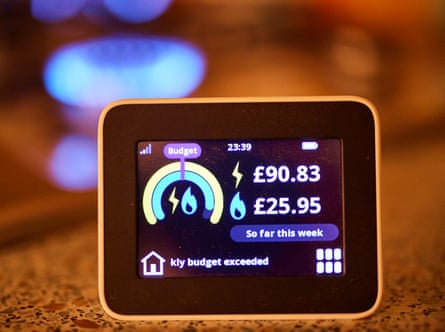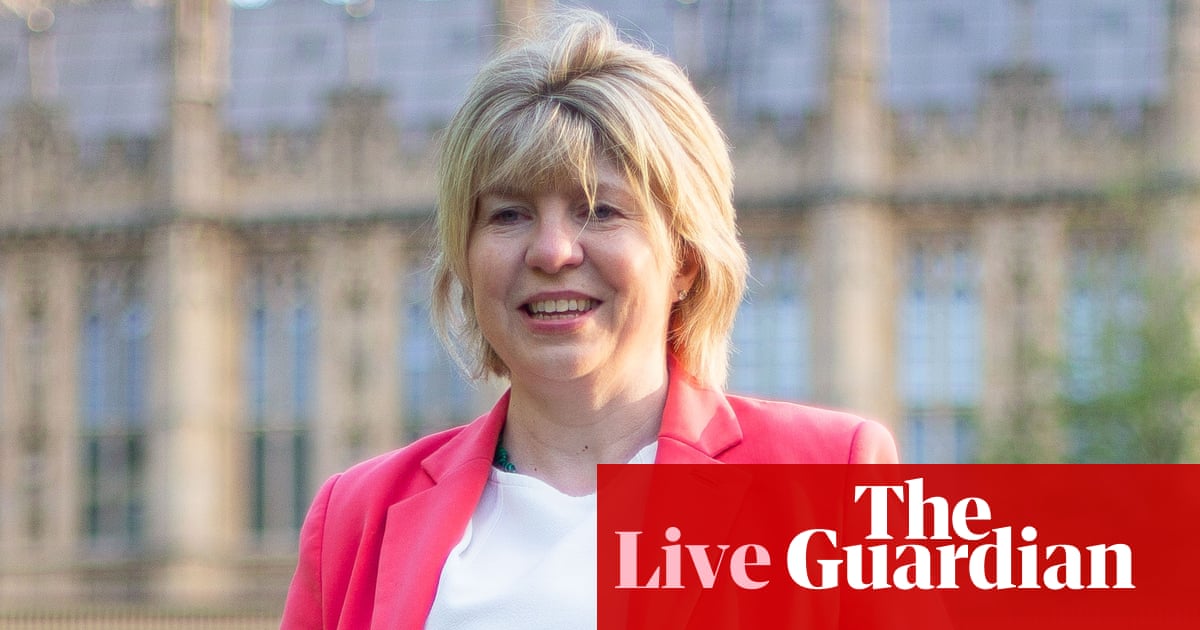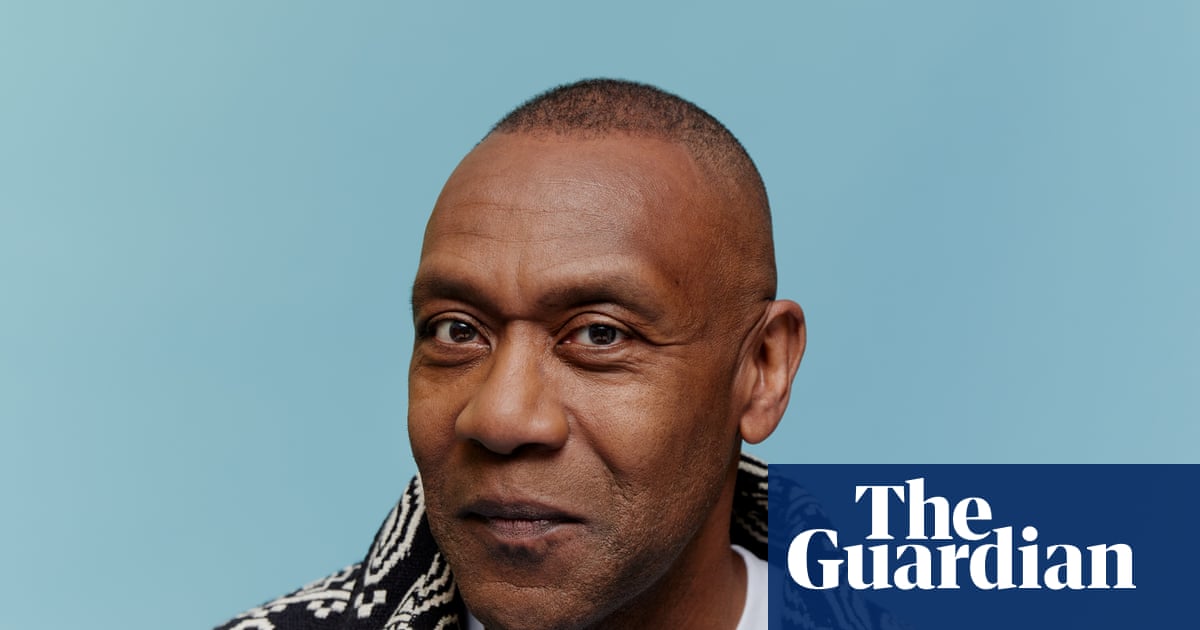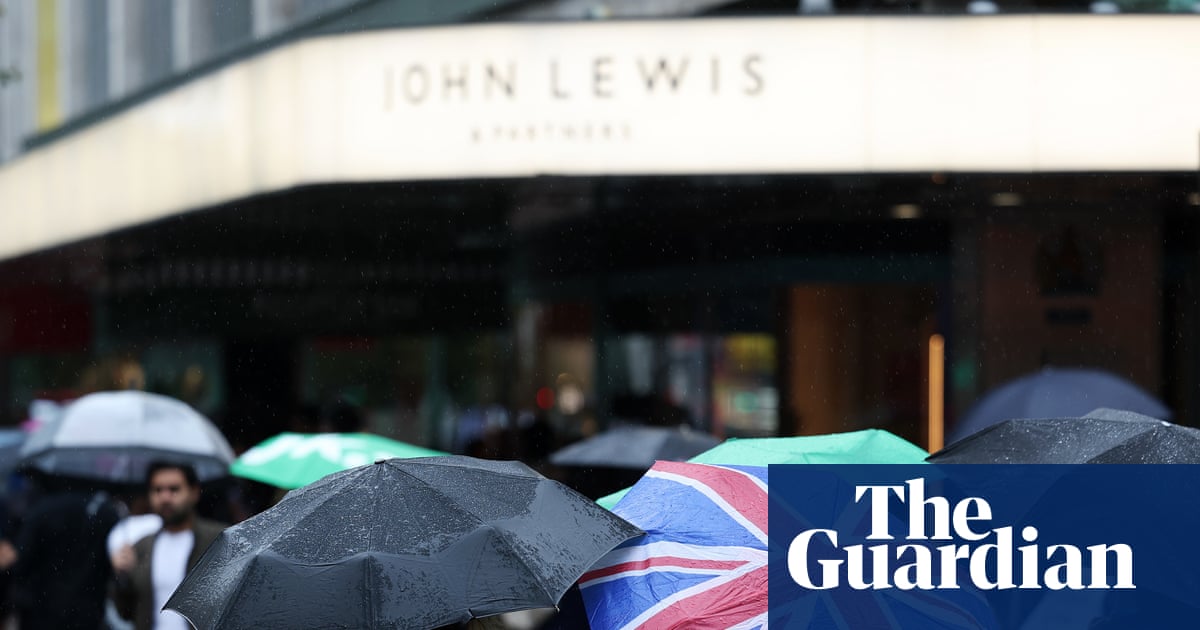It is understandable to be worried about your finances. The world seems to be lurching from one political crisis to the next, and each one has an impact on stock markets and prices.
A recent survey found UK consumers are worried about a slowing economy, possible tax increases in the next budget and rising food costs. We asked experts how you should manage your money in an uncertain world.
Investments
Stock markets around the world, especially in the US, were in flux earlier this year over Donald Trump’s tariff plans. Things have settled down now but it is impossible to predict what shocks may be around the corner.
If you hold stocks and shares – in an Isa or pension, perhaps – you may have been nervously checking their value. UK fund managers have been increasing their holdings in US companies over recent years, largely fuelled by the boom in tech stocks, so big moves over there have an impact here.
However, experts say the most important thing to do is to not sell up out of panic. The analyst Dan Coatsworth of the financial advisers AJ Bell says: “The worst thing people can do is to see troubling things in the news and then suddenly try to shift around their portfolio.” Markets have recovered in the past, he says, so patience is key.

Where this advice may differ is if you need your money for something in less than five years – such as a wedding, university fees or a house purchase. Then you should look at how much risk you are taking, he says.
Andrew Oxlade, an investment director at the fund management company Fidelity International, says this could mean switching some of your money away from the markets and into bonds. Bonds are issued by a corporation or country – the investor loans it money in exchange for a fixed rate of interest.
They are typically bought through a fund. Many investment management companies offer funds that have a split between equities and bonds, such as Vanguard’s Lifestrategy 80%.
Gold, an investment that is often seen as a safe bet during times of crisis, has tripled in price over the past decade, and many investors now hold a small amount in their portfolios, Oxlade says, after years of poor performance. Investing does not have to mean buying bars or coins – Fidelity says the most direct way for most is through an exchange traded fund that tracks the price of gold.
Mortgages
Interest rates in the UK can be affected by what goes on globally. The Bank of England is tasked with keeping inflation down. Before the war in Ukraine started, it had begun to put up rates, and as prices increased, it continued, raising them from 0.25% at the start of 2022 to 5.25% by August 2023, before holding them there for another year.
The Bank has been reducing rates and is expected to make more cuts later this year, but the question is when. If you are planning to take out a new mortgage – either to buy a home or as a remortgage – you face a decision about whether to fix for the short or long term, choose a tracker or even to go on a bank’s standard variable rate (SVR).
Currently, the best-priced two- and five-year fixed deals have a rate of just below 4%.
Nick Mendes of the brokers John Charcol says lenders are reducing rates at present largely because of falling swap rates, a key factor in how mortgages are priced. Swap rates reflect what the money markets expect to happen to interest rates in future.
“Fixed mortgage rates are more influenced by swap rates than the base rate itself, which means they are shaped by what markets think might happen in the future rather than what is happening today,” he says.

Going on to a lender’s SVR in the hope that fixed rates will improve later in the year is a risky strategy as the rates are high, at about 6.5%, and can change at any time and increase your monthly repayments.
Tracker mortgages are also worth considering, Mendes says. These are linked to the Bank base rate. “They tend to start lower than SVRs and often come without early repayment charges, which means borrowers can move on to a fixed deal later,” he says.
Mendes says people who are remortgaging should not “sit back and wait. Most lenders allow you to secure a new deal up to six months in advance, which is a smart way to hedge your bets,” he says. “You can lock in a deal now as a safety net and still switch to something better if rates improve before the new deal begins.”
For new buyers, Mendes says they should base decisions on what is affordable now rather than making assumptions about what may or may not happen in the future. “The last position anyone wants to be in is having overstretched themselves on the assumption that they will be able to refinance on to something cheaper at the end of their fixed-rate period,” he adds.
You are not tied to a rate until completion, so you should be able to switch if a better deal comes along.
Savings
Savings rates could fall even before the Bank reduces the base rate, says Rachel Springall of the financial information site Moneyfacts, as account providers may decide that they have enough deposits for a certain product. “If the whole market starts moving in one direction, you’ll find that other peers will do the same because they don’t want to put themselves too high up [in best buy tables],” she says.
Until then, easy access and fixed-term rates are competitive, Springall says.
The best rates this week for fixed one-year and two-year bonds are from Cynergy Bank (4.55% for the one-year and 4.45% for the two-year), while an easy access account from Chase offers 5%, although this includes a 12-month bonus and is a variable rate, so it could go down.
There have been increases in the interest paid on fixed-rate bonds in recent weeks, she says.
Anna Bowes of the financial advisers The Private Office says “now is a really good time for a saver who has not been paying attention to their savings” as there is good competition in the market.
If you have money in a variable-rate account it may be a good time to move it to a fixed rate.
Pensions
The tumultuous times that stock markets have been having since the start of the year will have had a direct effect on many people in the UK through their pensions. Often funds are heavily invested in US stocks, so the ups and downs there could be affecting your retirement saving.
It is understandable if you are considering shifting money in your pension into other safer options such as bonds, says Helen Morrissey, the head of retirement analysis at the financial advice company Hargreaves Lansdown. However, unless you are cashing in your pension within the next five years, you should avoid reactions based on the international turmoil, she says.

“Over the course of your saving journey, you will hit several periods of market volatility and it’s important to keep in mind that markets do recover over time,” she says. “Making kneejerk reactions such as changing investment strategy has the potential to lock in losses as you miss out when markets do recover.”
Workplace pensions are often invested in “lifestyling” funds, which reduce the amount of risk as the holder gets older by shifting from equities to bonds. So if you are approaching retirement this may be happening automatically.
If your fund has been hit by turbulence in the markets and you intend on retiring soon, Morrissey says that you may want to start to take a lower amount out from your fund than you had planned in order to allow the rest to recover from any losses caused by market turbulence.
“We suggest that people in [income] drawdown keep between one and three years’ worth of essential expenditure [from their savings] in an easy access account that they can use to supplement their income during times of turbulence,” she adds.
Another option, on retirement, is to invest some or all of your fund in an annuity, where returns are close to all-time highs. Annuities convert a lump sum from your pension into a regular guaranteed income for the rest of your life or a fixed term. A healthy 65-year-old can now get an annuity rate of 7.72% on average, according to the pension provider Standard Life – that means that for every £100,000 invested, they would get an annual income of £7,720.
Energy bills
About 21 million households will see their bills decrease after the price cap was reduced this week. For a household with typical usage, the cap has dropped by £129, to £1,720 a year. The good news may not last too long, however, as there are predictions of increases in October.
After the recent conflict between Iran and Israel, oil prices went up because of concerns that supplies could be affected by threats of a blockade of the strait of Hormuz. Prices later reduced after a ceasefire deal was agreed.

Will Owen of the price comparison website Uswitch says the volatility of the international economy has led to uncertainty. “We are now seeing predictions from various organisations and energy suppliers that the price cap from October onwards will probably go up,” he says.
To protect yourself against a rise you could considered a fixed-rate tariff – with these each unit of energy and the standing charges are set for a certain length of time.
The MoneySavingExpert site advises that you are “very likely” to save if you can find a fixed-rate deal priced at least 5% below the current price cap, which is predicted to fluctuate.
The current best deals are a 12-month fix from E.ON Next that is 8.8% below the cap, another from Outfox Energy that is 8.1% less and then a fix from EDF Energy that is 7.2% less, according to the site.

.png) 2 months ago
30
2 months ago
30

















































